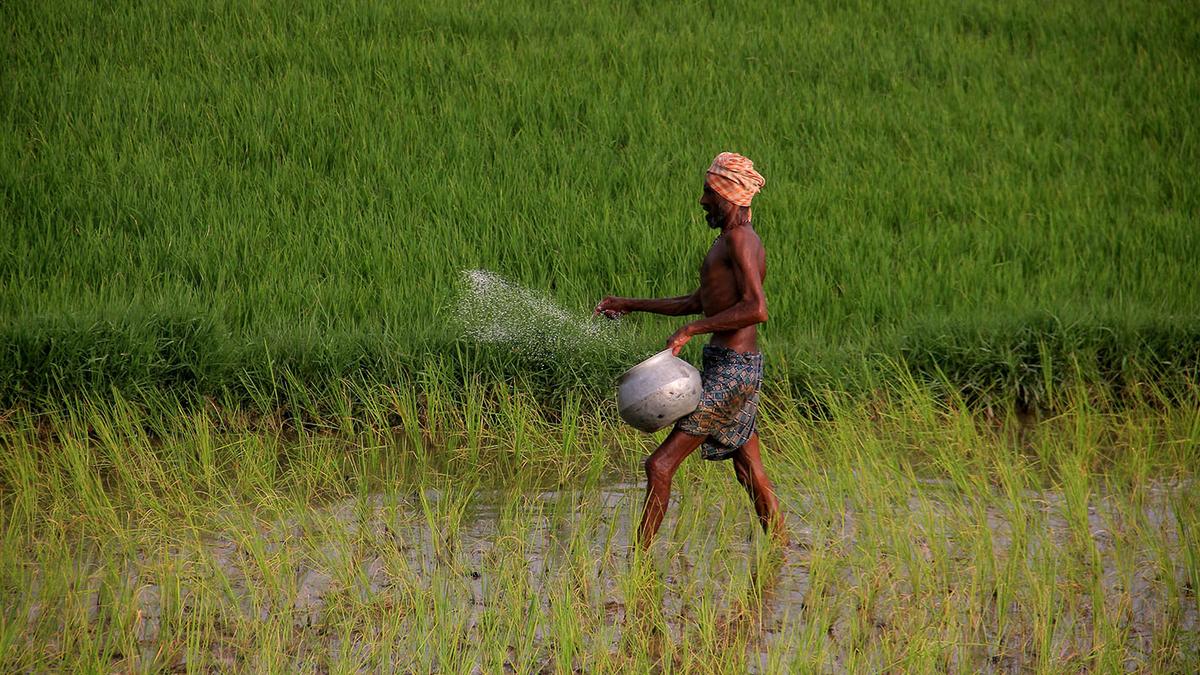
Image used for representative purpose only
| Photo Credit: BISWARANJAN ROUT
Poor households globally lose 5% of their total income in an average year due to heat stress and 4.4% due to floods compared with households that are relatively better off, the Food and Agriculture Organization (FAO) of the United Nations said in a report on Wednesday (October 16, 2024), warning about the negative impacts of climate change on the farming population in India.

Senior FAO economist Nicholas Sitko presented the report “The unjust climate. Measuring the impacts of climate change on rural poor, women, and youth” at an event in New Delhi.
The report said on-farm income sources of the rural poor in India were affected in different ways depending on the type of climate stress. In case of droughts or such events, poor households dedicated more time and resources to agricultural production to sustain themselves, as off-farm employment opportunities reduced.
The total incomes of poor households reduce compared with those of families that have not been exposed to a significant climate stressor, it said. “The vulnerability of poor households to climate stressors is likely to be rooted in structural inequalities,” the report said and asked the government to take policy measures such as expanding the social security net.

Anticipatory social protection programmes can be scaled up and scaled out to more beneficiaries in anticipation of an extreme weather event, the report suggested. “Providing effective livelihood support ahead of extreme weather events can help reduce reliance on adverse coping strategies and limit the number of people pushed into poverty because of these events,” it said. The report recommended improving workforce diversification and enhancing off-farm employment opportunities. “Complementary support, such as mentorship programmes and initiatives to strengthen socio-emotional skills, is essential for effective participation in the modern workforce,” it said.
It urged policymakers to address “gendered barriers” in non-farm employment. “Gender-transformative methodologies, which use social behaviour change methodologies to directly challenge discriminatory gender norms, can tackle entrenched discrimination that often prevents women from exercising full agency over economic decisions that impact their lives,” it said.
Also Read:Food access is about equitable agrifood systems
The report added that floods, globally, widen the income gap between poor and non-poor households in rural areas by approximately $21 billion a year, and heat stress by more than $20 billion a year. “Long-term temperature rises lead to an increase in poor households’ dependency on climate-sensitive agriculture relative to that of non-poor households. A 1° C increase in average long-term temperatures leads to a 53% increase in the farm incomes of poor households and a 33% decrease in their off-farm incomes, relative to non-poor households,” the report said.
Responding to the report, NITI Aayog member Ramesh Chand told The Hindu that India was doing its best to deal with the issue of climate change. He said recent Periodic Labour Force Surveys had shown remarkable increase in the participation of women in workforce. “We have implemented National Innovations on Climate Resilient Agriculture (NICRA) much earlier to address the problem of climate change. This project helped farmers adapt to severe climatic conditions. We were first in the world to do so for all crops. We also have a contingency plan for all agriculture districts. We were the first country to implement an employment guarantee scheme as a social safety net. During the pandemic, we gave 10 kilogram foodgrains free for two-third of our population. The report should have considered these aspects too. If there are any good policy suggestions by the FAO, we should consider that too,” he said.
Published – October 16, 2024 10:37 pm IST
